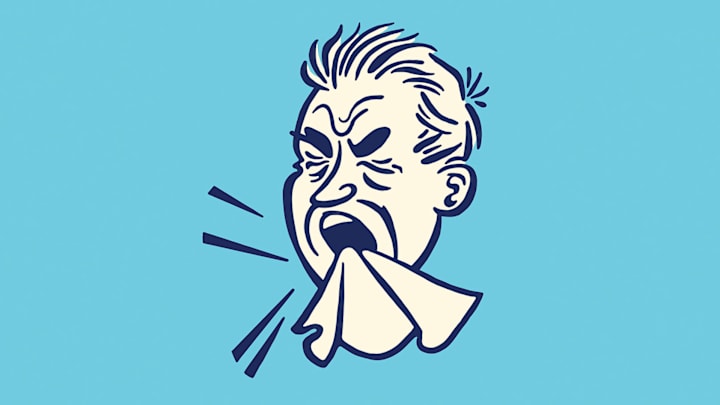Everyone has a friend or family member who sneezes so loudly it sounds almost painful. A noise so startlingly harsh it leaves you wondering: Is that thunderous achoo just for theatrics’ sake? Let’s uncover the reasoning behind those wretchedly loud sneezes—whether psychological or a result of anatomy.
As neurologist Alan Hirsch told NBC News, “Some [laughs] are loud, some are soft. And it’s similar with sneezing. It will often be the same from youth onward in terms of what it sounds like.” This means that our sneezes result in part from our personalities and individual traits, whether we realize it or not.
That’s also a supporting factor behind why men are more often notorious for being loud sneezers, as they don’t have the social pressure to be quiet. In fact, according to Live Science, a little over 45 percent of men admitted to being “big sneezers,” while 32 percent of women claimed they intentionally hold in their sneezes when possible.
However, our subconscious isn’t the only determining factor behind sneeze volume; our anatomy also plays a role. The size and capacity of your lungs can affect how loud your sneezes are. “The longer you hold your breath, the more dramatic you make it,” Richard Harvey, a rhinologist at St. Vincent's and Macquarie University Hospitals, told Australia’s ABC News. How you sneeze matters, too: “If you sneeze through your mouth it will be louder, but if you sneeze through your nose it will be wetter, messier,” Harvey warned.
Can holding in your sneeze make it quieter?
If you’ve ever had to let a sneeze loose in a crowded setting, you might’ve considered trying to stifle it. That being said, you should never attempt to hold in your sneeze.
The intensity of the pressure built up from a sneeze is immense—so much so that holding it back can cause you to damage your blood vessels, rupture an eardrum, or even have an aneurysm. Ultimately, it’s a safer choice to risk the loud noise than to potentially cause yourself harm. After all, it’s better out than in.
